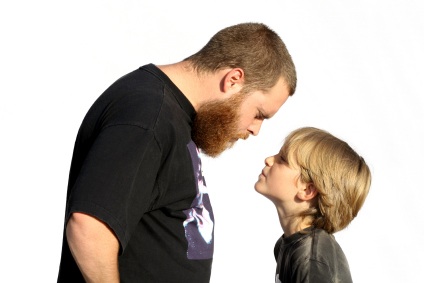|
|
Senior preschooler - a small visionary, a tireless researcher, always knowing unidentified. We, the adults surrounding our "visionaries", should support the construction of hypotheses and search for their evidence, to stimulate the interests of our children.
Child under school age characterize the desire to ask questions and the ability to find answers. This preschooler inclined to experiment, to an active search activities. He can focus on long-term interest to his problem. The assimilation of new knowledge he asks a lot of adult issues, attempt to find a link to their own experiences, expresses genuine speculation, assumptions, in other words, takes a creative approach to the subject and the process of cognition.
One of the main conditions for the development of the ability to ask questions is the position of the adult. It teaches the child to see and articulate the problem - put the question and to report the results of cognition. Hence it is important to spontaneous attitude adult children issues. Adult must provide the child with the possibility of independent search for answers that in the future will teach him to think, to reason, to attempt to resolve the issue. By taking this position, an adult opens the way for the formation of children's independence and critical thinking.
At the same time, it must constantly encourage children "to ask." The role of the adult in this process is to ensure, to create specific objects or situations that stimulate intellectual activity of the child and the ability to ask questions.
All questions to be answered accurately children and affordable. Moreover, should be commended for a good question, for the desire to learn. But even better, if the adult is, is sympathetic to the lack of knowledge of the child, and to encourage its own in answer dictionaries, reference books, books, and encyclopedias.
Adults need to remember one more important point: they have to teach preschoolers not only ask questions, but to formulate the questions so that they provoke a response, and mental activity.
That children are not afraid to ask questions, it is necessary to convince them that you do not know something does not feel ashamed. Shame not to know if you can do it. Have to convince kids that ask questions - this is useful: "You're going to know when you find the answers." Need to encourage children to ask, "Well done, you asked a good question, so you follow the train of thought, you think." And praise the child, not only for good answers, but for the good questions, "Who did not ask, he learned nothing. You want to be smart - learn to ask questions. "
Adults do not have to laugh at the child, sets the weak question. We must remember that he has the right to make mistakes. Therefore it is better to teach children to ask probing questions to help them understand the problem.
Child under school age characterize the desire to ask questions and the ability to find answers. This preschooler inclined to experiment, to an active search activities. He can focus on long-term interest to his problem. The assimilation of new knowledge he asks a lot of adult issues, attempt to find a link to their own experiences, expresses genuine speculation, assumptions, in other words, takes a creative approach to the subject and the process of cognition.
One of the main conditions for the development of the ability to ask questions is the position of the adult. It teaches the child to see and articulate the problem - put the question and to report the results of cognition. Hence it is important to spontaneous attitude adult children issues. Adult must provide the child with the possibility of independent search for answers that in the future will teach him to think, to reason, to attempt to resolve the issue. By taking this position, an adult opens the way for the formation of children's independence and critical thinking.
At the same time, it must constantly encourage children "to ask." The role of the adult in this process is to ensure, to create specific objects or situations that stimulate intellectual activity of the child and the ability to ask questions.
All questions to be answered accurately children and affordable. Moreover, should be commended for a good question, for the desire to learn. But even better, if the adult is, is sympathetic to the lack of knowledge of the child, and to encourage its own in answer dictionaries, reference books, books, and encyclopedias.
Adults need to remember one more important point: they have to teach preschoolers not only ask questions, but to formulate the questions so that they provoke a response, and mental activity.
That children are not afraid to ask questions, it is necessary to convince them that you do not know something does not feel ashamed. Shame not to know if you can do it. Have to convince kids that ask questions - this is useful: "You're going to know when you find the answers." Need to encourage children to ask, "Well done, you asked a good question, so you follow the train of thought, you think." And praise the child, not only for good answers, but for the good questions, "Who did not ask, he learned nothing. You want to be smart - learn to ask questions. "
Adults do not have to laugh at the child, sets the weak question. We must remember that he has the right to make mistakes. Therefore it is better to teach children to ask probing questions to help them understand the problem.



No comments:
Post a Comment